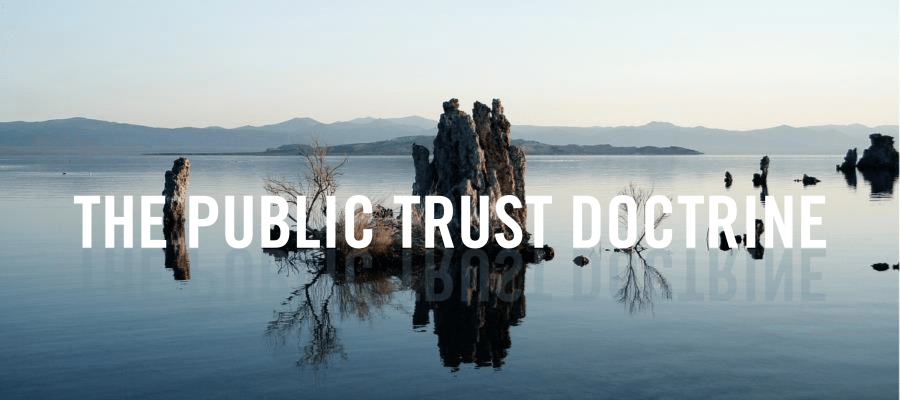Case Comment: MC Mehta vs Kamal Nath
Introduction
The case of MC Mehta vs Kamal Nath whose judgment was delivered in the year 1996 was one of the landmark cases in the history of environmental law in India. This case mainly set a precedent as to how the Doctrine of Public Trust must be applied with respect to protecting natural resources in India. According to the Doctrine of Public Trust, all natural resources such as air, water, forest and sea belong to all the human beings and accordingly have a right to share it equally amongst themselves. Therefore, it means that the government is barred from distributing any such natural resources on the basis of private ownership to any individual for the purpose of commercial use. This doctrine can be traced back to ancient Roman law.
Facts of the case
An article was published in the Indian Express newspaper that an ambitious project called Spam Club was being floated by Span Motels Pvt. Ltd., a private company which was the owner of Span Resorts. The then Minister of Environment and Forests, Mr Kamal Nath was known to have direct links with the company. A huge area of land consisting of almost 27.12 acres which also consisted of forest land was encroached upon by the company. On 11th April 1994, the land was regularized and later was leased out to the company subsequently.
The company’s encroachment of the land had a major impact on the river Beas. The management of Span Resorts for the second time after a span of more than 5 months tried to change the course of the river by using bulldozers and earth movers. These harmful activities undertaken by the company became the cause of floods in the river in the month of September of 1993 and led to destruction of property worth Rs 105 crores.
Issues
1. Whether or not Mr Kamal Nath has been rightly inducted as the respondent in the writ petition?
2. Whether or not the construction activity done by M/s SMPL was done with a view to protect the lease hold land from floods?
3. Whether or not the Doctrine of Public Trust is a part of the legal system in India?
Judgement given by the court
1. The Doctrine of Public Trust must be considered as part of the laws of the land.
2. The lease deed which was formed in favour of the motel was quashed by the court.
3. The Motel Company was ordered to bear the cost of restitution due to the loss caused to the natural resources and the environment.
4. A boundary wall must be constructed by the Motel at not more than a distance of 4 meters from the main building which is towards the river basin. The boundary wall shall be on the area of the Motel which is covered by the lease dated September 29th 1981. The Motel shall not encroach/cover/utilize any part of the river basin. The boundary wall shall separate the Motel building from the river basin. The river bank and the river basin shall be left open for public use.
5. Any sort of untreated effluents must not be discharged directly into the river.
6. Span Motels was additionally required to show why they should not pay pollution fine, compliant with the polluter pays principle.
Analysis
As stated in the facts, because of the Motel being constructed a lot of pollution was caused as a result of it and even led to diversion of the course of the river. Pollution comes under the ambit of a civil wrong and is considered as a tort which is committed against the entire community as a whole. The reason that the company actually encroached a huge part of the forest land is because of the grant of lease by the Government to the company. After the filing of the PIL by MC Mehta and consideration of all the facts which were disclosed during the proceedings before the court, it was held by the court that “the said construction would be a serious act of environmental degradation”.
The application of the Doctrine of Public Trust was done in this case which states that none of the natural resources are subject to any sort of private ownership by any individuals. It was held by the Supreme Court that a huge breach of public trust was committed by the Government of Himachal Pradesh by leasing out the land to the Motel because the huge part of the land near the banks of river Beas which is actually a part of protected forest was leased out to the Motel for the purpose of nothing but commercial use.
Importance of the Public Trust Doctrine
The court in this case held that “issues in the present case point out towards a classic struggle between those members of the public who would preserve our ecological resources and those charged with administrative responsibilities who, under the pressures of the changing needs of an increasing complex society, find it necessary to encroach to some extent open lands therefore considered in-violate to change.” Despite so many cases, neither the Central nor State Governments have made any laws to resolve this issue. In the absence of such a law, the executive must not fail to protect the ecological resources and convert them into private ownership.
References
1. MC Mehta v. Kamal Nath, (1997) 1 SCC 388
2. Doctrine of Public Trust and its Application in India https://lawcolumn.in/doctrine-of-public-trust-and-application-in-india/
Author: Haritha Malepati,
3rd year BBA LLB, Symbiosis Law School, Hyderabad

